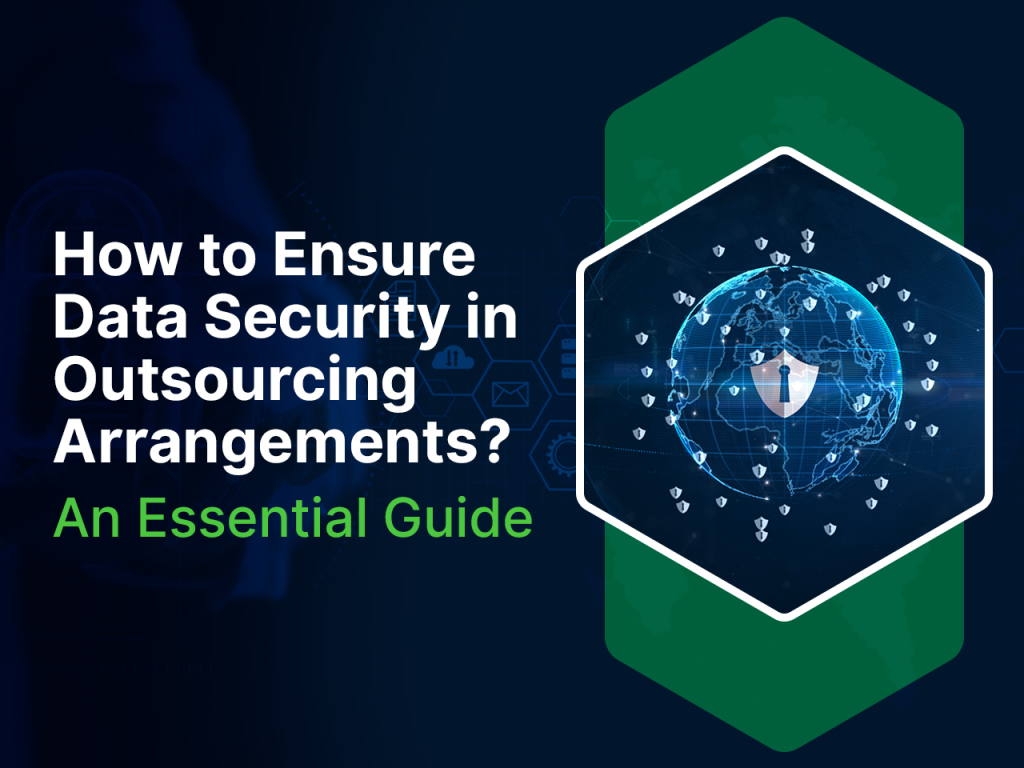Data breaches and cyber threats are becoming increasingly commonplace in today’s digital era, posing serious challenges to businesses worldwide. Consequently, the issue of data security has escalated to the forefront of business concerns, especially when it comes to outsourcing business processes. As outsourcing involves entrusting third-party service providers with sensitive data and critical operations, ensuring a high level of security is paramount. This article delves into the importance of secured outsourcing and explores strategies for businesses to bolster data protection in their outsourcing arrangements.
Understanding the Significance of Secured Outsourcing
The Increasing Reliance on Outsourcing
Companies across the globe are turning to outsourcing as a strategic business move to unlock numerous benefits, ranging from operational efficiency and cost reduction to access to specialized expertise and advanced technologies. However, the very nature of outsourcing, which involves delegating business processes to external providers, exposes companies to potential security risks. As such, secured outsourcing has become a top priority for businesses seeking to reap the rewards of outsourcing without compromising their data integrity and confidentiality.
The Escalating Threat Landscape
In the digital age, cyber threats are growing in both frequency and sophistication. Data breaches, hacking attempts, ransomware attacks, and phishing threats are becoming more prevalent, placing enormous pressure on companies to fortify their security measures. This need for enhanced security extends to outsourcing arrangements, where sensitive data and critical operations are often in the hands of third-party service providers.
The Stakes Involved
The consequences of inadequate data security in outsourcing can be severe. A single data breach can lead to significant financial loss, reputational damage, and potential legal repercussions. Furthermore, it can undermine customer trust, which can have long-lasting impacts on a company’s market position and growth prospects. Therefore, the role of data security in outsourcing cannot be overstated.
Securing Outsourcing Services: Key Strategies and Considerations
When it comes to securing outsourcing services, businesses need to adopt a multipronged strategy encompassing legal, technical, and operational measures. Here are some crucial considerations and strategies to enhance data security in outsourcing arrangements.
Legal Measures for Secured Outsourcing
Data Protection Agreements
One of the key legal measures to ensure secured outsourcing is the execution of robust data protection agreements with service providers. These agreements should clearly outline the provider’s obligations to protect data, the specific security measures to be implemented, and the penalties for non-compliance. This not only sets clear expectations but also provides a legal safeguard against potential breaches.
Compliance with Data Privacy Laws
Another important legal consideration is compliance with data privacy laws and regulations. These laws vary across different regions and jurisdictions, and it is crucial for businesses and their outsourcing providers to understand and adhere to these requirements. Non-compliance can lead to hefty fines, legal actions, and reputational damage.
Technical Measures for Secured Outsourcing
Advanced Security Technologies
On the technical front, businesses should ensure that their outsourcing providers employ advanced security technologies and measures. This includes data encryption, secure servers, two-factor authentication, and state-of-the-art antivirus and anti-malware solutions. These technologies can significantly enhance data protection and mitigate the risk of breaches.
Regular Security Assessments and Audits
Regular security assessments and audits are also critical to maintaining a high level of security. These assessments can help detect potential vulnerabilities and security gaps, enabling timely remediation. In addition, audits can ensure compliance with security standards and policies, further bolstering data security.
Operational Measures for Secured Outsourcing
Security Training and Awareness
On the operational level, businesses should ensure that their employees and the staff of their outsourcing providers are adequately trained in security practices. Regular training and awareness programs can equip staff with the knowledge and skills to identify and prevent potential security threats.
Strict Access Controls
Implementing strict access controls is another effective operational measure. This involves restricting access to sensitive data and systems to only those individuals who need it to perform their duties. Access controls can significantly reduce the risk of unauthorized access and potential data breaches.
The Role of Compliance in Secured Outsourcing
Compliance with industry standards and regulations plays a pivotal role in ensuring secured outsourcing. Adherence to recognized security standards not only enhances data protection but also instills confidence in customers and stakeholders. Here are some key compliance considerations for businesses engaging in outsourcing.
Adherence to Industry Standards
Industry standards such as ISO/IEC 27001, SOC 2 Type II, and PCI DSS provide comprehensive frameworks for managing information security. Compliance with these standards signifies that an outsourcing provider has robust security controls in place and is committed to maintaining high levels of data protection.
Regulatory Compliance
In addition to industry standards, businesses must also comply with relevant regulatory requirements. This includes data privacy laws such as the General Data Protection Regulation (GDPR) and the California Consumer Privacy Act (CCPA), as well as sector-specific regulations like the Health Insurance Portability and Accountability Act (HIPAA) for healthcare and the Sarbanes-Oxley Act (SOX) for finance. Regulatory compliance is not just a legal obligation but also a testament to a company’s commitment to data privacy and security.
Choosing the Right Partner for Secured Outsourcing
Selecting the right outsourcing partner is crucial to ensuring secured outsourcing. A trusted partner like STAMOD not only provides high-quality outsourcing services but also prioritizes the highest level of data security. Here are some key factors to consider when choosing an outsourcing partner.
Security Credentials
Examine the provider’s security credentials, including certifications, compliance records, and security audits. This can provide valuable insights into the provider’s commitment to data security.
Data Security Policies and Procedures
Inquire about the provider’s data security policies and procedures. A reliable provider should have well-documented and robust security policies in place, covering aspects like data access, encryption, incident response, and disaster recovery.
Experience and Reputation
Consider the provider’s experience and reputation in the industry. A provider with a strong track record of delivering secure outsourcing services is likely to be a safer bet.
Customer References and Reviews
Check customer references and reviews to gauge the provider’s performance in terms of data security. Positive feedback from existing and past clients can be a good indicator of the provider’s reliability and commitment to data protection.
STAMOD: Your Partner for Secured Outsourcing
At STAMOD, we understand the critical importance of data security in outsourcing. We are committed to providing our clients with the highest level of data security across all our services. Our robust security measures, coupled with our compliance with industry standards and regulations, ensure that your data is in safe hands. Whether you’re looking to outsource IT services, business processes, or any other function, you can count on us for secured outsourcing that meets and exceeds your expectations.
Conclusion
In today’s digital age, data security is a non-negotiable aspect of outsourcing. Businesses must prioritize secured outsourcing to protect their sensitive data, comply with legal and regulatory requirements, and maintain customer trust. By adopting a holistic approach encompassing legal, technical, and operational measures, and partnering with a reliable provider like STAMOD, businesses can successfully navigate the complex landscape of data security in outsourcing. Remember, secured outsourcing is not just about mitigating risks; it’s about unlocking the full potential of outsourcing in a secure and compliant manner.

Engineering
Manufacturing
Prototyping
Software Development
AI for Manufacturing
Engineering
Manufacturing
Prototyping
Software Development
AI for Manufacturing








